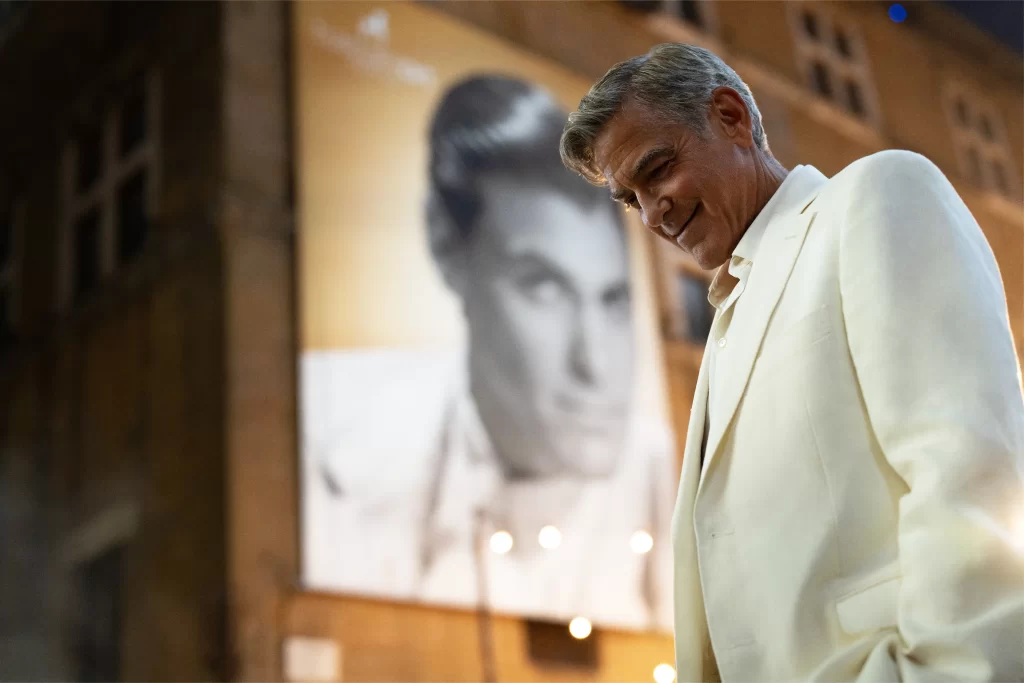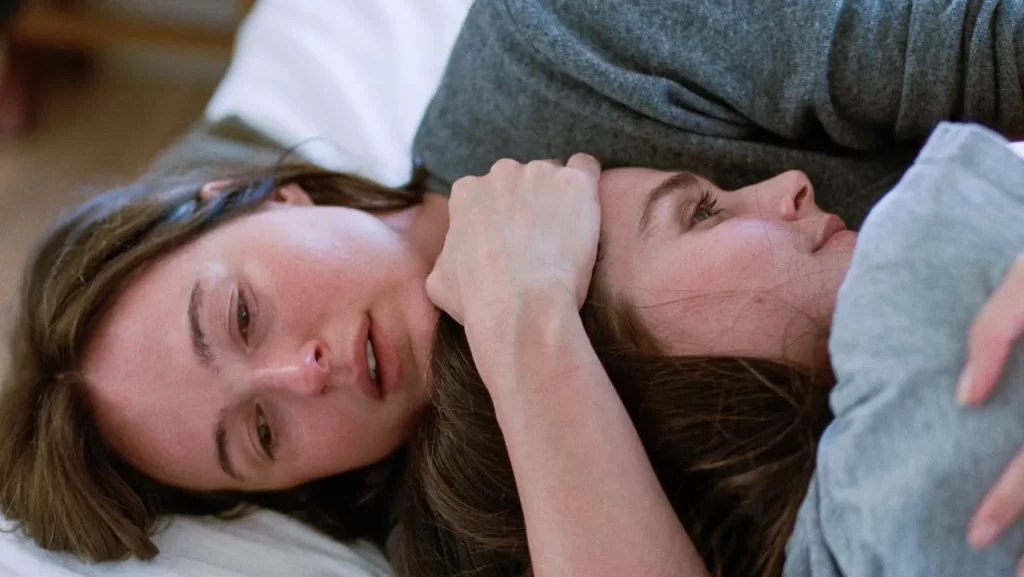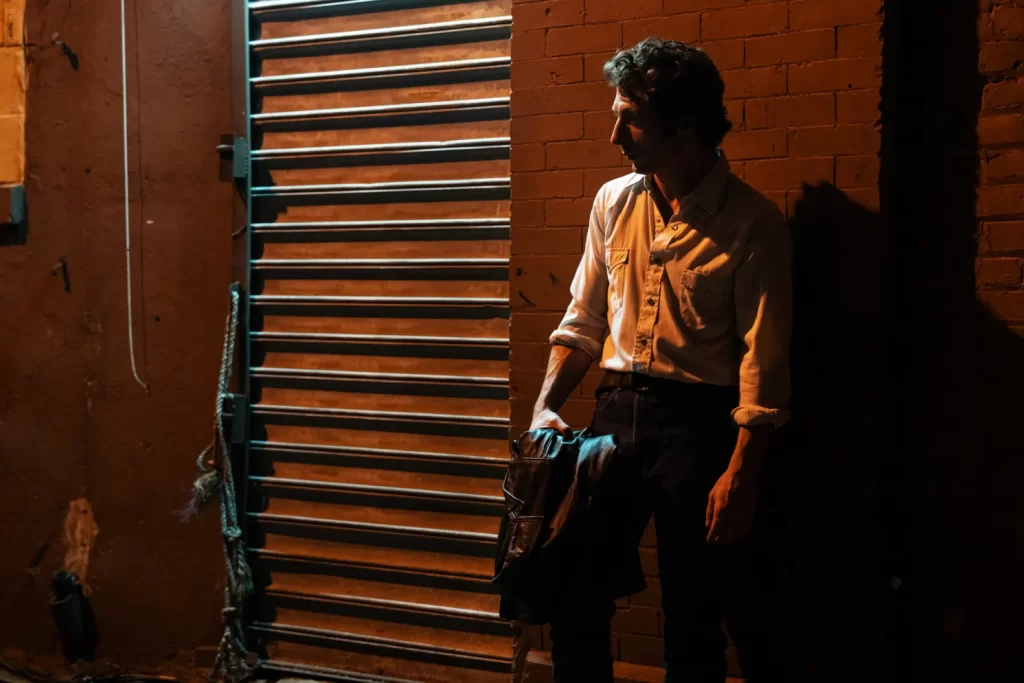In retrospect, it’s a little bit surprising that it took this damn long — 35 years into a career, give or take — for a filmmaker as cinematically obsessed as Richard Linklater to make a movie about making movies. And not just about making any movie; his Nouvelle Vague (which translates to “New Wave”) is about how Jean-Luc Godard made Breathless, one of the vanguard pictures of the titular movement. There’s a non-zero possibility that Linklater embarked on the project simply for the joy of the cinematic cosplay; he does everything he can to make it look and feel like the picture it’s based on, including French credits (“realize par Richard Linklater”), Academy ratio, black and white photography, and even cigarette burns (digital though they may be). And to his credit, it looks just right, not merely in the saturation, grain, scratches, etc., but the compositions and movement. This is clearly the work of a guy who has spent a lot of time watching French New Wave films.
Moreover, he’s spent a lot of time thinking about the people who made them. The film critics and essayists of Cahiers du Cinéma have become cinematic legends, writers whose love of film was so all-encompassing that most of them became filmmakers themselves, and shook up the entire art form in the process. The masterstroke of their portrayal here is the notion of the Cahiers crew as the sneering cool kids, smoking and talking shit in the corner.
A visiting Roberto Rossellini praises them as a “circle of cinemaniacs, insurgents all,” which is accurate. But the best thing about that scene is the button, in which we see the world-famous master of cinema grabbing a handful of the free sandwiches on his way out.
They’re fiercely opinionated and impossible to please, yet supportive of each other — in their way. The most opinionated is Godard (Guillaume Marbeck), about whom we’re told early on, “He’s the real genius. At least that’s what he’ll tell you.” He’s immediately framed as a know-it-all, both self-satisfied and unsatisfied, and the only thing that will either make him happy or shut him up is to finally let him direct his own feature.

These early patches are far and away the roughest of Nouvelle Vague, in which Linklater’s four screenwriters struggle heroically to impart a lot of information and a lot of introductions. The latter are handled fairly elegantly (with simple straight-to-camera close-ups, superimposed with character names), but the extent to which the set-up scenes turn into a collection of Godard’s Famous Quotes — “Art is not a pastime but a priesthood,” “All you need for a movie is a girl and a gun,” “The best way to criticize a movie is to make another movie,” all the hits — feels both phony and lazy. And it’s a cute moment, but the scene where Rossellini and Godard end each line of a conversation by saying each other’s name is extremely “Don’t you agree, Paul McCartney of the Beatles?”
But once we begin the actual physical production of Breathless (day by day, for the 20 days of principal photography), it’s easy to get caught up in it all. Linklater, no doubt through a combination of research and personal experience, summons up the genuine electricity of the first-time filmmaker, and the excitement is infectious. And he zeroes in on what was legitimately, non-hyperbolically groundbreaking about Godard and his film: the on-the-fly photography, the disregard for continuity, the striving for spontaneity, and the freedom of the jump-cut editing.
Godard was undoubtedly a genius. And as with many geniuses, he was also a huge pain in the ass. And here, Nouvelle Vague also fumbles a bit; we get what made him so unique, and we see what made him so infuriating. But the character within this particular dramatic narrative — and therefore the try-as-he-might performance by Guillaume Marbeck — never quite penetrates the surface. We get a sense of what he was, but not who he was.
Zoey Deutch, however, makes for a captivating Jean Seberg; she has that ethereal, pixieish, movie-star quality down cold, and her considerable spark helps keeps things lively. It’s hard to decide what’s more enjoyable: her reaction to Godard’s direction to “make the saddest shot in the history of cinema,” or what she delivers. Nouvelle Vague never quite transcends the gimmickry of what it’s doing, but it’s diverting enough, and if it gets a few curious Netflix viewers to seek out Breathless or The 400 Blows, well, that’s an unalloyed good.
B-
“Nouvelle Vague” is in theaters this weekend. It streams on Netflix on November 14.



